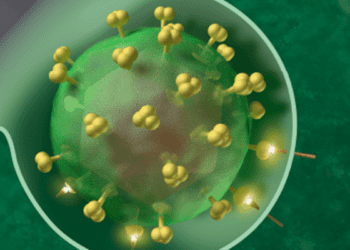Outcomes similar between tight and less-tight blood pressure control in pregnancy
1. There was no significant difference between tight blood pressure control and less-tight control during pregnancy in terms of pregnancy loss, serious neonatal complications, or serious maternal complications.
2. There was a significantly higher rate of severe hypertension (≥160/110 mmHg) in the less-tight blood pressure control group, though this did not affect the primary outcome.
Evidence Rating Level: 1 (Excellent)
Study Rundown: High blood pressure is a common complication during pregnancy and can be associated with bad outcomes if severe. Blood pressure can be controlled with medications, but treatment may present risks for the developing fetus. A pregnant woman with a mildly elevated blood pressure poses a challenge for physicians: how tightly should blood pressure be controlled during pregnancy? What are the risks and benefits of tight blood pressure control versus less-tight control?
The Control of Hypertension in Pregnancy Study (CHIPS) enrolled over 900 pregnant women with mild pre-existing or gestational hypertension; participants were randomized to either tight control or less-tight control. In this study, tight control meant a target diastolic blood pressure of 85 mmHg and less-tight control meant a target diastolic blood pressure of 100 mmHg.
The study found that there was no significant difference in either pregnancy loss or serious neonatal complications between the groups. There was also no significant overall difference in maternal outcomes between the two groups, except for a higher rate of severe hypertension in the less-tight group (40.6% vs. 27.5%).
The results of this study suggest that the main difference between tight and less-tight blood pressure control is the occurrence of severe high blood pressure, though this did not significantly affect either maternal or fetal outcomes.
Click to read the study, published today in NEJM
Click to read the accompanying editorial in NEJM
In-Depth [randomized controlled trial]: 987 pregnant women with mild hypertension (diastolic blood pressure 90 to 105 mmHg) were randomized to either tight or less-tight blood pressure control. Tight control meant a target diastolic blood pressure of 85 mmHg, and less-tight control meant a target diastolic blood pressure of 100 mmHg. Physicians were free to prescribe a number of antihypertensive medications to their patients, though labetalol was the recommended first-line agent for the study.
The study population had a high proportion of women with pre-existing hypertension (~75%), and a lower proportion of women with gestational hypertension (~25%). All women had non-proteinuric hypertension.
The primary outcome was a composite of pregnancy loss and need for high-level neonatal care for more than 48 hours during the first 28 days of life. The secondary outcome was serious maternal complications occurring up till 6 weeks post-partum or until hospital discharge, whichever was later. There was no significant difference in the primary outcome between the less-tight control and tight control groups (31.4% vs. 30.7%, OR 1.02, 95% CI 0.77 to 1.35). Based on the 95% confidence intervals, the study was powered to detect a 5% decrease or 6% increase in the primary endpoint. There was also no significant overall difference in the secondary outcome between the less-tight and tight groups (3.7% vs. 2.0%, OR 1.74, 95% CI 0.79 to 3.84). However, severe hypertension (≥160/110 mmHg) was more common in the less-tight control group vs. the tight control group (40.6% vs. 27.5%, P<0.001).
More from this author: Early risk factor for progression of cystic fibrosis identified, Gut microbes implicated in stroke and heart attacks: new dietary link, New leukemia mutation offers therapeutic targets, Childhood ADHD associated with increased risk of suicide, A marker of aggressive liver cancer and potential therapeutic target identified
Image: PD
©2015 2 Minute Medicine, Inc. All rights reserved. No works may be reproduced without expressed written consent from 2 Minute Medicine, Inc. No article should be construed as medical advice and is not intended as such by the authors, editors, staff or by 2 Minute Medicine, Inc.






![Oxytocin therapy improves social activity in autism mouse model [PreClinical]](https://www.2minutemedicine.com/wp-content/uploads/2015/01/Oxytocin-neurophysin-75x75.png)
![Statin therapy does not prevent osteoporotic fractures [JUPITER trial]](https://www.2minutemedicine.com/wp-content/uploads/2014/12/osteoporosis-e1417474828821-75x75.jpg)

